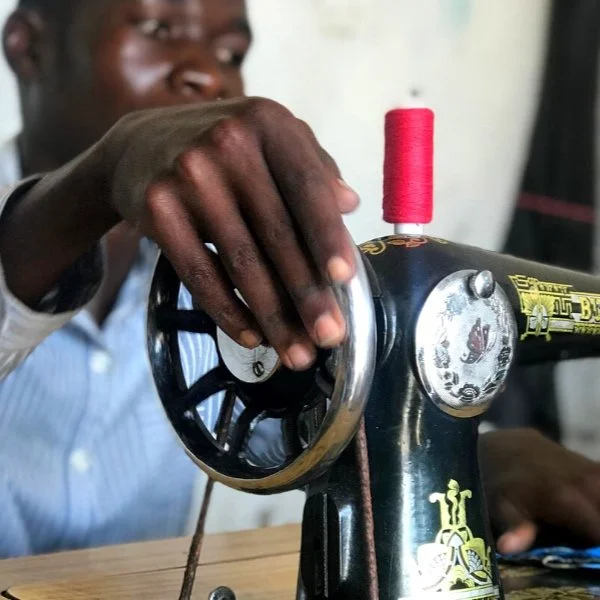Schools are not the only place to learn
upendo - “love”
Gender inequality is prevalent in Tanzania and starts for girls already at a very young age when they are deprived of the chance of an education in favour of their brothers. Without a good education, many girls and young women will remain financially dependent on parents, partners or husbands.
In order to help the young women to become economically independent we have developed our ‘Upendo’ (meaning ‘Love’ in KiSwahili) in collaboration with the young girls we are targeting. The girls chose the name of the project and they are strongly encouraged to actively partake in shaping and developing this project.
The participants, who are young girls aged 16 to 25, and who have all dropped out of school for various reasons, receive training in bookkeeping, entrepreneurship skills and sewing. The project will enable them to start and run their own businesses. These girls are not able to return to the public schooling system and there are no other alternatives present for them in the Nyamatongo Ward.
Literacy and special needs education
According to our baseline survey, the women of Kamanga do not share an equal status with men and are expected to take on the responsibility for caring for the whole family, as well as other labour-intensive tasks such as farming and carrying water.
In general, women’s illiteracy is one of the factors that leads to poverty and lack of opportunities – for instance, access to and use of proper healthcare. It also makes women vulnerable to sexual violence, abuse, neglect, marginalisation, discrimination and many other forms of inequality. Due to the clear connection between education levels and self-confidence, literacy decreases the likelihood of being subject to all forms of violence.
To gain an idea of the standards of education and the literacy status in Kamanga, the field team visited the primary schools of the village to identify and survey the quality of education provided. The results were stark: the main difficulties include lack of classrooms, a 1:113 teacher-to-pupil ratio, and often only a single textbook being shared by the whole class. The drop-out rate for girls at primary school is reported to be as high as 40%; reasons include early marriage and teenage pregnancy.
As a result, a project plan specifically tailored and based on the key findings was drafted. The main goal is to lower the rate of illiteracy by 15% among women and girls in Kamanga village by the end of the project. Furthermore, the project will support the implementation of Tanzania’s Vision of 2025, which aims at increasing quality of life as well as forming an educated and learning society.
We began planning a Special Needs Education Project in 2015, and during 2017, we continued our research on the barriers to education faced by children with disabilities and special needs. In collaboration with CHAWATA (the national disability organisation), we collected and evaluated field data, and developed a project outline on how to assist children with special needs both in and out of school.
Community Centre
Sengerema District Council has donated a building to Cedar Tanzania to be used for the benefit of the community. To support the entrepreneurial and educational needs of Nyamatongo Ward we have turned this building into a Community Centre with the help of one of our cherished corporate sponsors, Bamboo Drilling.
From this centre we hope to run programmes such as the following:
Literacy programme
Health forum to discuss issues of personal health
SASA! forum to discuss issues of power imbalance between men and women, with the aim of preventing violence against women and girls
After-school tutoring support
Computer literacy classes
Classes in business acumen
Entrepreneurial projects
English lessons
You are truly changing lives with every dollar you donate.
A monthly donation of as little as $10 can have a HUGE impact.
Donate once, or make it a monthly impact.
It’s your choice.
If you want to hear more about our educational projects please contact us:












